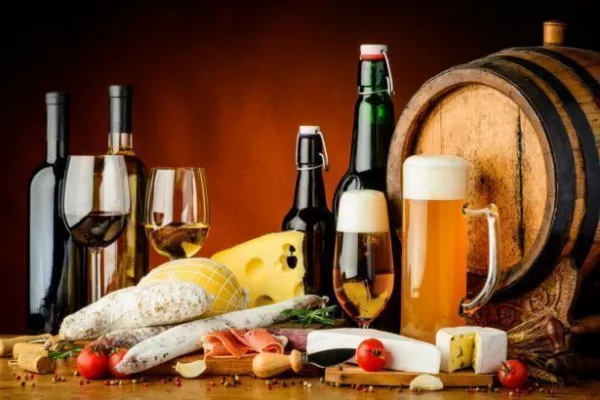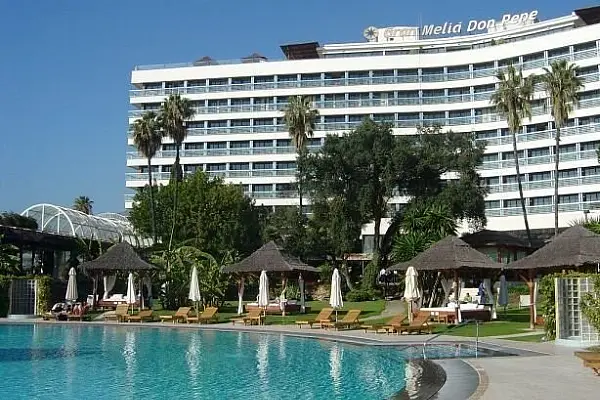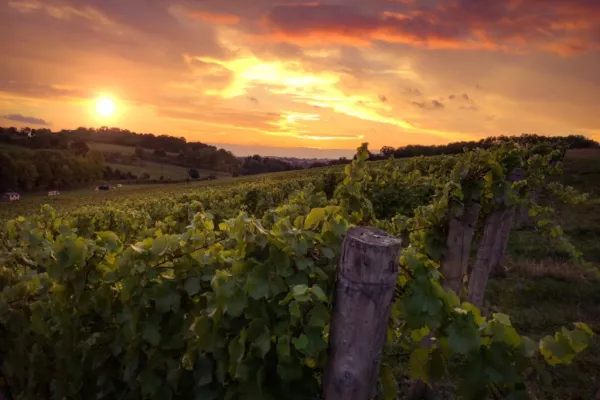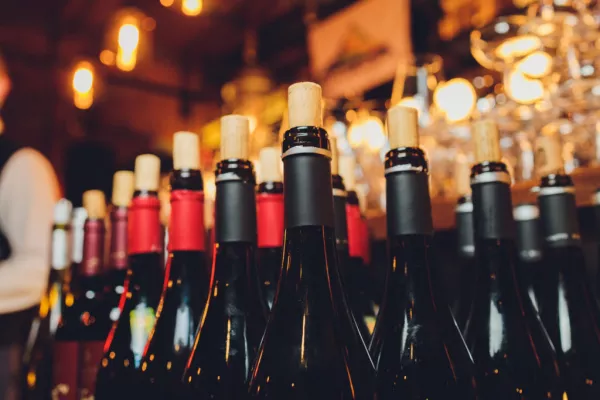Hospitality Ireland presents a round-up of global hospitality venue, drinks and food news.
Spain's November Hotel Bookings Jumped Five-Fold From November 2020
The number of nights booked by tourists in Spanish hotels surged five-fold in November from the same month a year earlier, but was still 20% lower than in November 2019, data released on Thursday December 23 showed.
The number of nights booked rose to 14.8 million in November, up from 2.8 million in the same month in 2020, the National Statistics Department said on Thursday December 23.
About 40% of the hotel rooms were booked by Spanish residents, and most of the foreigners went to the Canary Islands. The winter is a strong season for the Canaries, where Northern European like to travel to enjoy the warm weather.
The data is encouraging for the tourism-dependent Spanish economy, which has seen a strong recovery of the industry in the past months, although the Omicron variant may have a negative impact.
The government expects the number of foreign tourists coming to the country in the fourth quarter would reach two-thirds of its 2019 level, before the pandemic struck.
Brazil Brewer Ambev To Invest $154m In Recycled Bottles Factory
Brazilian brewer Ambev SA will build a new factory in the state of Parana to produce bottles made of recycled glass, the company announced on Thursday December 23, saying it expected to invest 870 million reais ($153.9 million) in the plant.
Ambev, a subsidiary of Belgium's Anheuser-Busch InBev SA , said the deal was a bet on the development of so-called reverse logistics and the circular economy. The factory is expected to start operating in 2025.
According to Ambev, the announcement is in line with its goal of having 100% of its products in returnable or recycled packaging by 2025. The factory will produce bottles from glass shards collected by reverse logistics companies and cooperatives, the company said, adding that each bottle could be reused more than 20 times per year.
The new plant will be 100% supplied by renewable power, Ambev added.
Asset Bubbles? Champagne Outfizzes Big Tech And Bitcoin In 2021
You might be tempted to pop corks if you've invested in vintage champagne this year - the most coveted bottles have outperformed all major financial market assets, from Big Tech to bitcoin.
Online platforms that allow you to trade desirable wine, champagne and spirit vintages, much like stocks or currencies, have seen record activity and bumper price movements this year.
Data from LiveTrade, which runs the "Bordeaux Index" of drinks, showed champagne accounted for 15 of the 20 top price rises on the platform in 2021.
The charge was led by Salon le Mesnil's 2002 vintage, described by its producer as "captivating like a samurai sword". It has surged more than 80% in value in 2021 on both LiveTrade and another wine platform Liv-ex, and currently sells for roughly 11,700 pounds a bottle ($15,700).
That beats bitcoin's 75% rise and is nearly five times more than the 18% made by the NYFANG+TM stocks index of Facebook, Amazon, Netflix, Google, Tesla and Microsoft which have powered world equity market gains of late.
Taittinger's Comtes de Champagne 2006 also sparkled, along with Krug's 2002 and 1996 vintages, with price rises of more than 70%, while the Krug 2000, Bollinger La Grande Année 2007, Cristal Rosé 2008 and Dom Pérignon P2 2002 have seen rises of 54%-55%.
LiveTrade CEO Matthew O'Connell said several factors had fuelled a boom in fine-wine trading this year - "from low interest rates and high levels of savings accumulated by the wealthy during numerous global lockdowns, to a growing focus on hard assets in the face of rising inflationary pressures".
Champagne benefited early in the year as it was exempt from the 25% U.S. tariffs put on European wines by Donald Trump's U.S. administration which were then suspended shortly after Joe Biden took over.
Cristal's 2012 and 2013 champagnes were the most-traded bottles of the year overall, LiveTrade said, followed by leading fine wine, the 6,450-a-bottle Lafite Rothschild 2014.
The prized claret brand's stellar performance was driven by normally less coveted "off" vintages – namely 2011, 2012, 2014 and 2017 - all of which enjoyed 25% plus sales growth.
A record 220,000 bottles were traded this year on LiveTrade at an average bottle price of about 230 pounds ($308.50) apiece. A tenth of all bottles traded saw their prices rise by over 30%.
The Champagne 50 index was the top-performing sub-index in the Liv-ex Fine Wine 1000, up 33.8% year-to-date (Friday December 24, 2020).
Farm Aid: Chipotle CEO Brian Niccol On America's Farming Crisis
When you order at Chipotle Mexican Grill, you are probably not thinking about the complex supply chain that got your food into your hands.
That is Brian Niccol’s job.
As Chipotle’s CEO and chair, the buck stops with Niccol when it comes to all those logistics. But Niccol does want you to consider the land and workers needed to make it all happen because without them, you’re not getting that meal.
Niccol spoke with Reuters about the real and disturbing implications of disappearing farmers and farmland.
Q: Why do you think farming is in such crisis?
A: A lot of farms are not transferring generationally and a lot of farmland is being lost to development. We are running a new campaign informing people about this, because we want to make sure land ends up in the hands of farmers.
In the last decade alone, the U.S. has lost more than 20 million acres of farmland, and 400 million acres are expected to need new farmers in coming years.
If young farmers can’t find affordable land, that’s just not going to happen. We want to make sure government is aware of this, and people are aware because a lot of folks don’t even realize this is happening.
Q: The number of farmers has been declining for decades. What does this mean for you?
A: We love the idea of supporting small farmers. We want to stay committed to food with integrity and that means responsibly raised animals and organic produce.
We need small farmers, and we are committed to buying from them. We also invest in them and give them tools to provide food at scale. This is constantly on our minds, and we hold ourselves accountable.
Q: How do you support them specifically?
A: One of the biggest things is creating long-term contracts. If you give them a three- or four-year contract, that helps dramatically because they know they have a buyer on the other end, and can invest accordingly.
The other thing we do is provide grants for younger farmers who are getting started and need money to plant their first crop or buy their first animals.
Q: Everyone is talking about the supply-chain nightmare. Is it giving you constant headaches?
A: We have a lot of great partners and have been able to smart forward-buy where we need to, to stay in stock on key items. But it’s not getting any easier, that’s for sure. Between freight and labor challenges, this is a daily discussion.
Q: Are there particular menu items that are harder to secure than others?
A: So many items are grown and raised right here in the U.S., and we have longstanding relationships with those folks. We knew what to plan for, and we didn’t run into any real problems.
Lately the bigger challenges have been associated with building restaurants: There you run into challenges like getting access to HVAC equipment, and buying enough steel to make grills.
Q: How has the labour squeeze impacted you?
A: There is a real battle going on for labour. I’ve never seen it so tight. That’s why it’s really important to talk about purpose.
Another part of it is that you have to have wages right and the ability to grow those wages. We also offer benefits I really love, like debt-free degrees and tuition reimbursement. We have always been a leader on the wage and benefit front.
Q: What leadership lessons have you taken away from the COVID era?
A: From a management standpoint, you can’t communicate enough in times of uncertainty. You can’t be afraid to say, "This is working" or "This isn’t working."
You have to keep the communication flowing. Be transparent in what you know and what you don’t know, and then ask for feedback because it can’t be just one-way communication.
Q: What is your favourite item on the menu?
A: Barbacoa (beef). I love it. I get it every which way possible. (Editing by Lauren Young)
Jana Partners Nominates Two To TreeHouse's Board
Hedge fund Jana Partners said on Thursday December 30 it nominated two directors to the board of TreeHouse Foods Inc , months after it pushed for changes at the packaged food maker.
The private-label food group said in November it was exploring options including a sale of the company or divestment of a unit after pressure from the activist investor.
In a regulatory filing on Thursday December 30, Jana Partners nominated Chris Sliva and Wendy Beck to the board.
Sliva was the chief executive officer of AdvancePierre Foods, which was acquired by Tyson Foods Inc in 2017, while Beck is known for her executive roles at Domino's Pizza Inc and Norwegian Cruise Line Holdings Ltd.
Jana Partners owns a stake of more than 9% in TreeHouse, the filing with the U.S. Securities and Exchange Commission showed.
TreeHouse did not immediately respond to a Reuters request for comment.
Jana Partners is known for pushing for changes at Whole Foods and Pinnacle Foods. Whole Foods was later sold to Amazon, while Pinnacle was acquired by Conagra Brands.
EU Records First Drop In Sparkling Wine Exports In Decade As Champagne Loses Its Fizz
The European Union's exports of sparkling wine to the rest of the world fell last year for the first time in a decade, Eurostat said on Friday December 31, largely because of a massive drop in champagne sales, though prosecco and cava sold well.
The COVID-19 pandemic dampened wine trade globally in 2020, the latest year for which data are available, as restaurants and bars remained closed for long periods.
Champagne was hit the hardest. Sales outside the EU of the famed French sparkling wine fell over 20% by volume to 66 million litres in 2020 from nearly 84 million litres the previous year.
That largely contributed to a 6% overall drop in EU exports of sparkling wines last year compared to 2019, the Eurostat data showed.
EU exports fell from a peak of 528 million litres in 2019 to 494 million litres in 2020 - still nearly twice the level recorded in 2010.
Of the three main categories of sparkling wine exported from the EU, only champagne recorded a significant drop by volume.
Prosecco, which is by far the most exported, recorded sales outside the EU of 205 million litres in 2020, compared to nearly 207 million litres in 2019.
Cava, which is produced in Spain, bucked the trend by increasing its extra-EU exports by more than 10% to 58 million litres in 2020, getting closer to replacing champagne as the second most sold EU sparkling wine outside the 27-nation bloc.
Total champagne sales, including in the EU, fell 18% last year by volume, producers' group CIVC has estimated.
Despite the drop in sales by volume, vintage champagnes have proven a lucrative draw for investors this year, outperforming all major financial market assets from Big Tech to bitcoin. Salon le Mesnil's 2002 vintage surged more than 80% in value in 2021 on online platforms.
Delivery Hero Acquires Majority Stake In Spanish Food Delivery App Glovo
German food delivery group Delivery Hero said on Friday December 31 it had signed an agreement to acquire about a 39.4% stake in Spanish delivery app Glovo.
The company currently holds approximately 43.8% in Glovo shares on a non-diluted basis.
The transaction will value Glovo at €2.3 billion on a fully diluted and debt free basis before certain adjustments, the company said.
Delivery Hero also committed to provide a back-stop financing of up to approximately €250 million to Glovo in several tranches in the course of 2020, the company added.
Glovo will continue operations with their existing brand and platform under their current management, it said.
South African Breweries May Require Staff To Have COVID-19 Vaccines
South African Breweries (SAB), part of Anheuser-Busch InBev, said on Tuesday January 4 it was looking at making COVID-19 vaccinations mandatory for staff across its operations, the latest company in South Africa to consider such a move.
South African firms including telecoms provider MTN Group , insurers Discovery and Old Mutual, and Dis-Chem Pharmacies have already said they would require employees to have COVID-19 shots, potentially opening themselves up to legal challenges.
President Cyril Ramaphosa also said in November the government was considering making COVID-19 shots compulsory for citizens to access certain places and activities.
South Africa had seen a surge in coronavirus infections since November, driven by the new Omicron variant. While officials believe it has passed the peak of infections, they still strongly encourage vaccinations.
SAB, which makes Carling Black Label and Castle Lager beer, said it would begin a consultative process this month and a final decision on mandatory vaccines would be made in due course.
"As a pro-vaccination company, we aim to safeguard our employees in the workplace and aid the country in its drive to overcome the pandemic and recover the economy," the brewer said in a statement.
SAB has been forced to stop selling alcohol more than four times since the pandemic started as part of efforts to free up space in hospitals burdened with alcohol-related injuries for COVID-19 patients.
News by Reuters, edited by Hospitality Ireland. Click subscribe to sign up for the Hospitality Ireland print edition.









